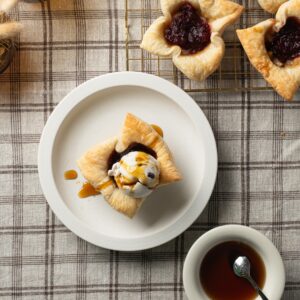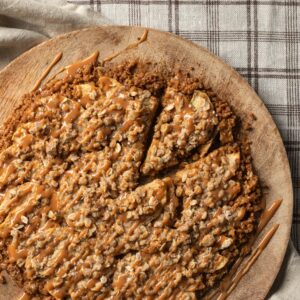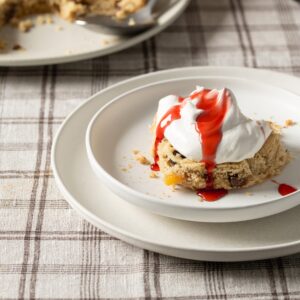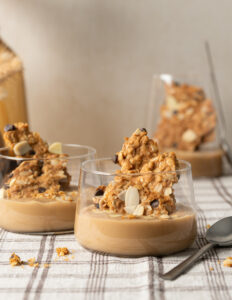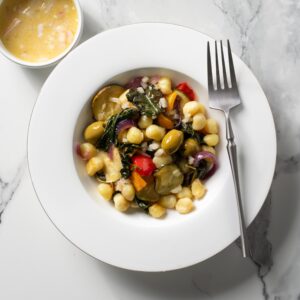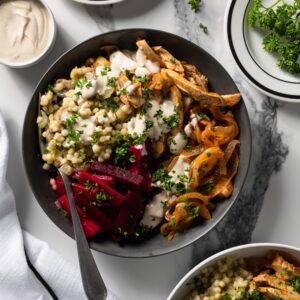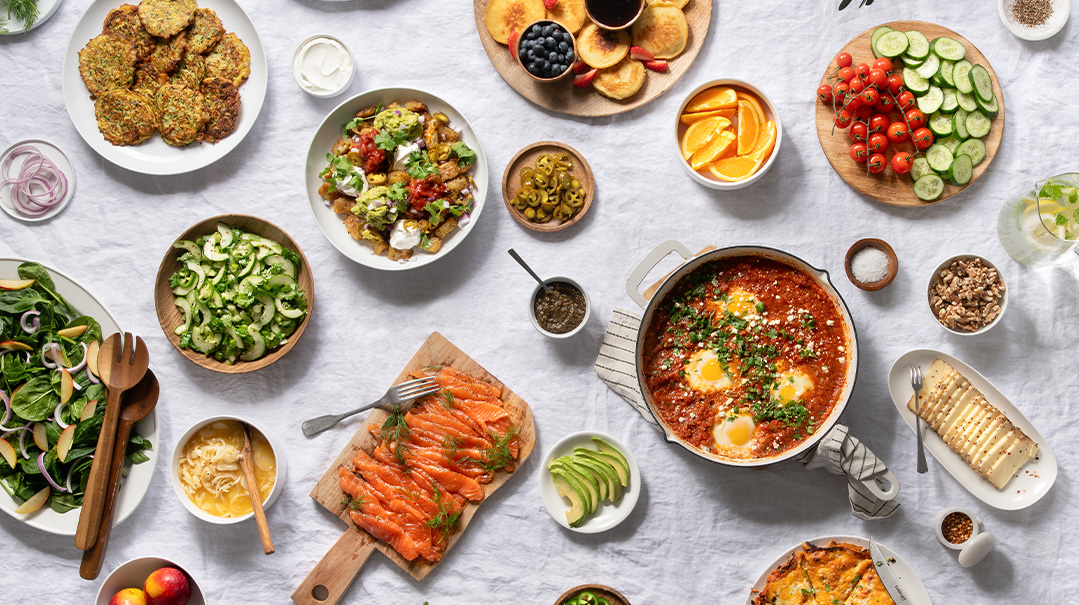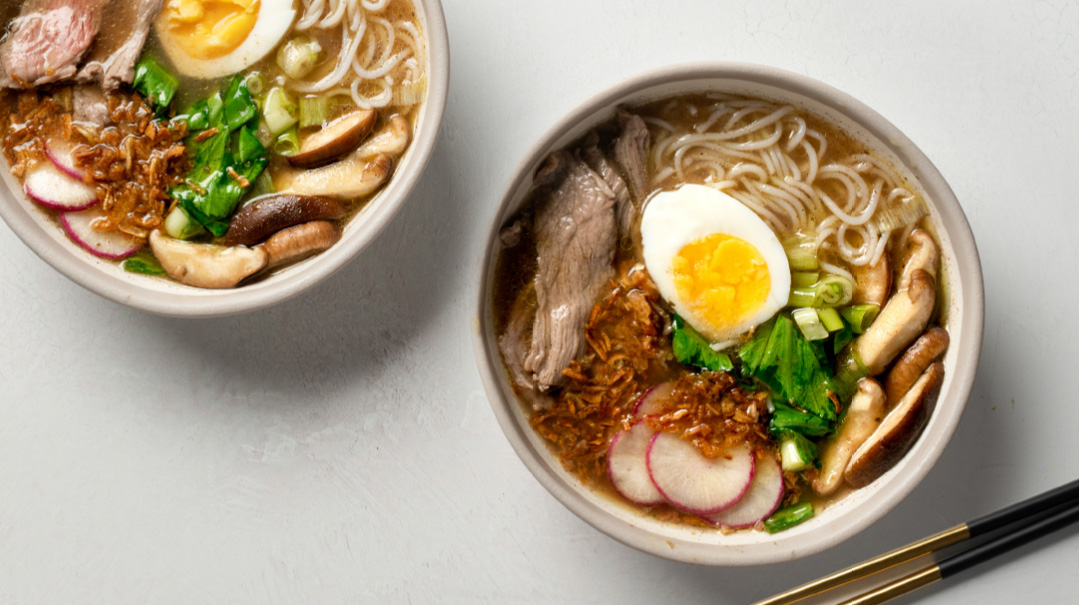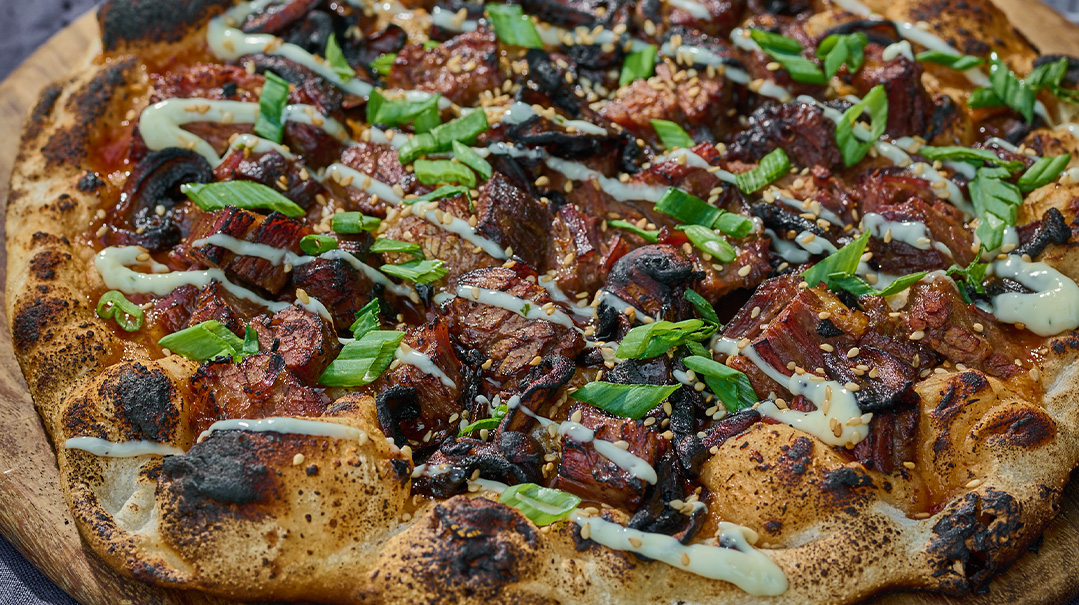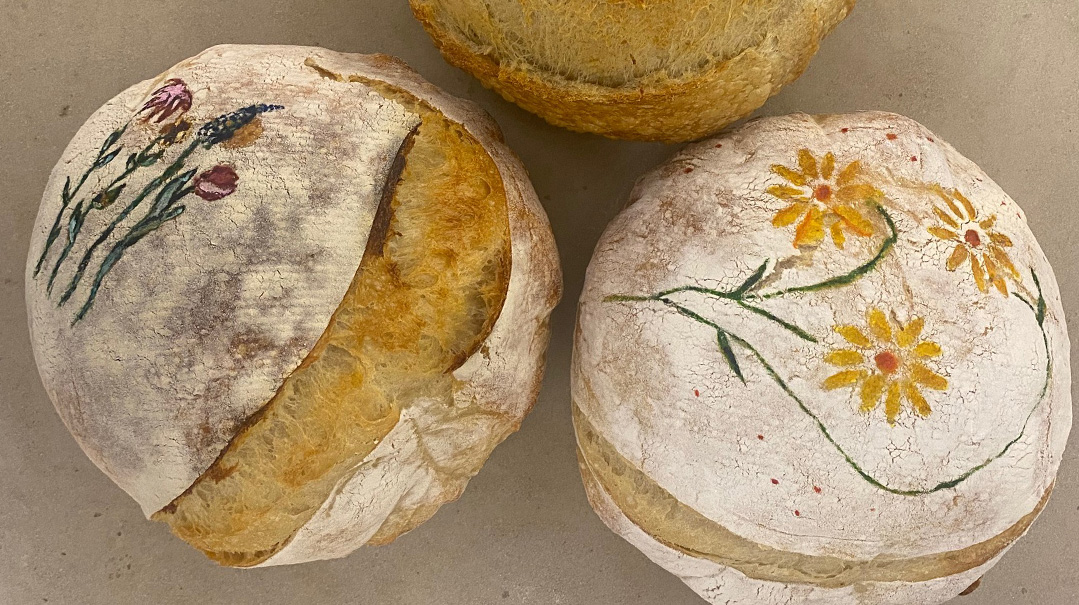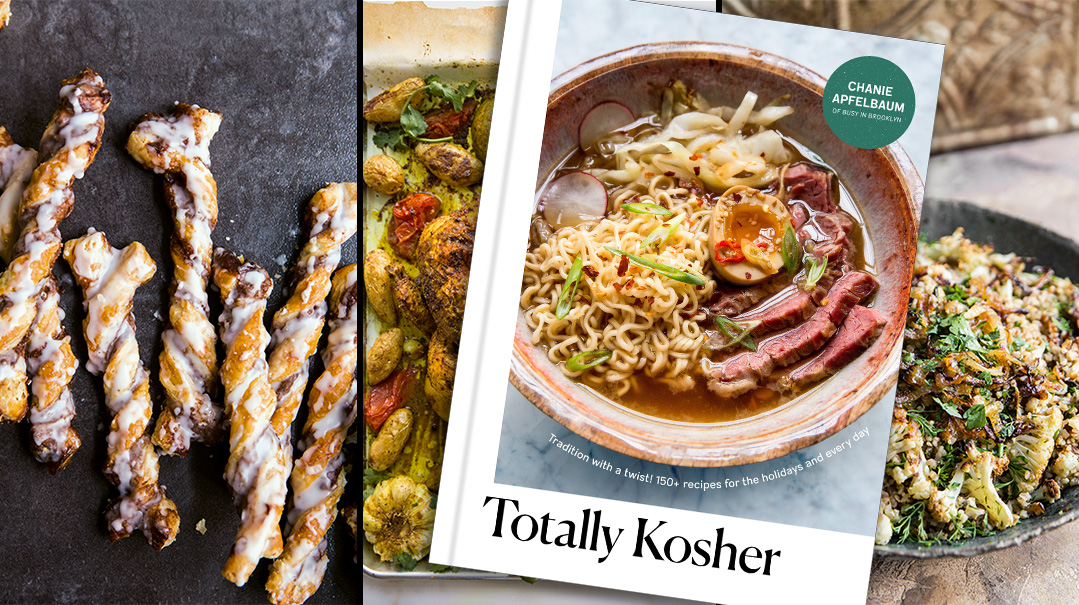Banquets for Bikers

What happens when you combine a high-endurance sports event with Jewish organizing? Camp Simcha fuels their bikers with more than just food.
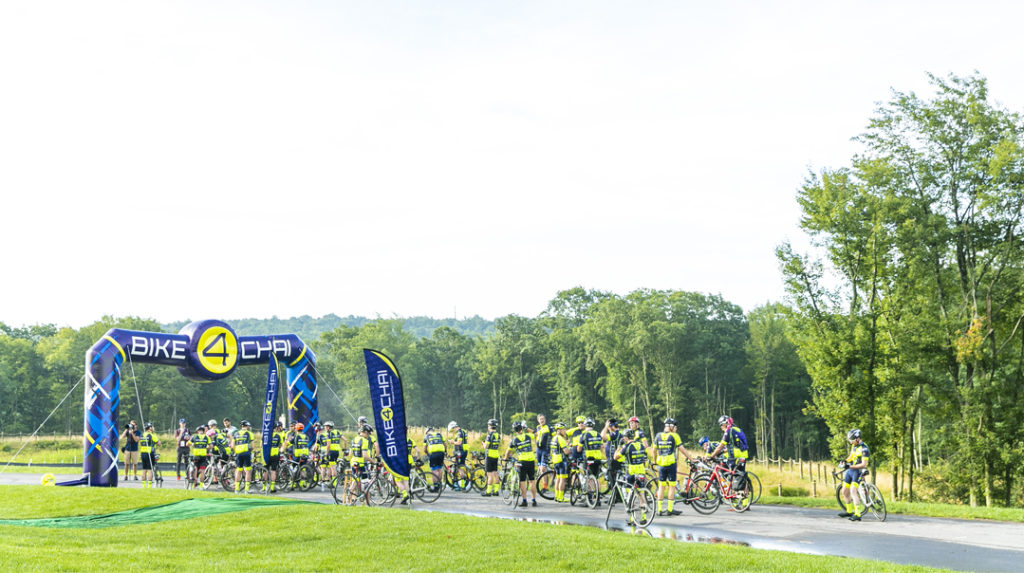
With pomp and ceremony, the ribbon is cut. And they’re off!
This August 14th and 15th, over 600 intrepid men will ride the two-day, 180-mile Bike4Chai route from the starting line (this year, in Princeton, N.J.) to Camp Simcha in Glen Spey, N.Y. Borne on wings of camaraderie and altruism, clothed in their navy and chartreuse Bike4Chai jerseys, they’ll trace a grueling path across country roads until they arrive triumphantly at the finish line. At Camp Simcha, friends, family, campers, and staff come out joyously to greet them like the heroes they are. “Bike4Chai is Chai Lifeline’s single biggest fundraiser,” says Rabbi Yoel Margolese, Bike4Chai’s director. “Last year, we raised close to $10 million, and this year, we hope to break the 10 million mark.” For him, Bike4Chai and its sister ride, Tour de Simcha [see sidebar] are a year-long effort that involve getting sponsors, staying in touch with participants, volunteers and donors, managing publicity, and mapping the routes and making sure they’re well-marked, safe, and free of debris. Bike4Chai began in 2009, when cyclist Dovid Eggert got himself some sponsors and biked from Lakewood to Camp Simcha, raising $10,000. The following year, 40 people rode, and the event has simply taken off from there. Bike4Chai expects 600 bikers this year, plus a support staff of 300 to help with everything from registration and luggage to rest stops and road crews.
Many of the cyclists ride in teams, either corporate sponsored or simply groups of friends. Other teams ride in memory of a loved one or as a zechus for a refuah sheleimah. Simchy Goldstein, an EMS lieutenant for the FDNY, has participated in the ride for nine out of its ten years. He got involved when a friend challenged him to try it. “I didn’t even own a bike then,” he relates. “My friend lent me the bike in his garage. I didn’t even train the first time — I had no idea what I was getting myself into!” Although he describes himself as more of a foodie than a cyclist, he got hooked. The camaraderie and high spirits kept him going, and the smiles of the campers made every aching muscle worthwhile. His team has so far raised over $100,000 for Camp Simcha.
Yanky Engelberg, a physical therapist in Brooklyn, heard about Bike4Chai when he treated some patients for back and knee pain before and after the ride. He was eventually hired to work with cyclists on the evening between the two days of riding, helping them keep loose and limber, and became inspired to try it himself. “I hadn’t thought of cycling as something I’d do long-term. I had to borrow a bike,” he says. “But I found I enjoyed it! It’s not a race; it’s more about the people and enjoying the ride.” He’d met Ralph Herzka of Meridian Capital through a professional connection and joined Meridian’s team of cyclists. What would encourage someone to push their capabilities to such a strong extent? Some bikers were previously involved with Camp Simcha and/or Camp Lifeline. They've seen what these organizations do, and they're more than willing to bike for the cause. Others have friends who've pulled them in, sharing that heady sense of accomplishment. The conjunction of a high-endurance sports event with Jewish organizing means lots and lots of food. “We sometimes call it Eat4Chai,” jokes Rabbi Margolese. “It’s an endurance event, and the cyclists need hydration and energy.”
Simchy Goldstein says that the team he’s been part of for the past eight years calls itself Negative Riders, because, as he claims, “We consume more calories than we burn up!” Even before the ride begins, the teams bond with celebratory meals. Teams from all over the country — Houston, Chicago, Long Island — do training rides of 50 to 60 miles to get in shape for the actual ride, and then they finish off with barbecues. “The barbecues are more simple,” Rabbi Margolese says. “For most people, the most fun is the friendship and camaraderie created by doing this together with other great guys.” The actual Bike4Chai event kicks off with cyclists arriving at the hotel the night before. There they receive their jerseys, T-shirts, and Bike4Chai insulated water bottles and accessories (often personalized). That evening, they’re treated to an amazing pasta party, based on the premise that it’s important for athletes to load up on carbohydrates before an endurance event. Although it's called a pasta party, they're other carbs like rice, potatoes and sweet potatoes, and quinoa, as well as a huge selection of meats, salads, and desserts. (Simchy jokes that his team is partial to desserts and beer.) But the dinner's fueling is more than food — there are inspiring speakers who provide the emotional fueling, including some Camp Simcha campers who speak about what the camp means to them.
The following morning, before the ride, breakfast is also carb-heavy: think plenty of toast, oatmeal, grains, and eggs. Riders are discouraged from loading up on dairy or anything else that might irritate the digestive tract during an endurance ride. Once the cyclists are on their way, there are five rest stops — one every 20 miles — which are generously stocked with energy bars, gels, and drinks, as well as cooling fare: Rita's ices, Klein's ice cream, and other frozen treats. “We let the serious riders eat the energy bars,” Simchy says. “My team goes for the ice cream!” There are also sports drinks and snack offerings like salted potatoes, chips, olives, and pickles. “The body needs to replenish during long exertion,” Rabbi Margolese explains. “It especially needs hydration, but you need to provide electrolytes and salt to help the water absorb optimally.”
One of the rest stops offers lunch, usually light fare that won’t overwhelm the stomach: bourekas, wraps, made-to-order peanut butter and jelly sandwiches, shots of expresso. The ride is definitely physically taxing. “There are a lot of support vehicles with bike racks, for anyone who needs to stop,” Yanky says. The cyclists are also trailed by an ambulance, just in case, chas v’shalom, someone feels unwell. The ride goes on rain or shine, so cyclists might end up drenched or baking in the sun.
Simchy, who’s now pushing 50, says that during every ride, he reaches a point where his energy wanes and his mind starts to rebel. He says that his yetzer hara protests, “I’m not doing this anymore! This is my last ride!” But then they reach the finish line, and it’s so exhilarating he can’t wait to sign up again. At the end of the first day’s 110 miles, riders arrive at the Kalahari Hotel. Depending on their speed, they may arrive as early as 1 p.m. or as late as 9 p.m. There, they find a big reception waiting for them, with pizza, pretzels, beer, and drinks. Later that evening, they’re treated to another full, fleishig buffet to fortify themselves for the next day’s ride. Rabbi Margolese finds it works better to use different caterers at the dfferent hotels; the project is too big for a single caterer to handle, and splitting it gives parnassah to a few at once. The second day of the ride is about 30 miles shorter, and most of the riders arrive at Camp Simcha by 2:30 to 3:30. They don’t ride directly into the camp; instead, they stop about a mile outside Camp Simcha at a staging area, where they enjoy a huge barbecue to celebrate their accomplishment.
“The barbecue is super-extravagant,” Simchy says. “The ride is over, and everyone’s diets go straight out the window!” Then, at 4:00, the cyclists ride together for that last mile into camp, where the campers and staff all come out to greet them and party with lots of music, dancing, and fun. That's when the real highlight of the whole event takes place — any previous celebration is just secondary to the uplifting feeling of joining with the campers they’re fundraising for. “Riding into camp is definitely the most exciting moment of the whole thing,” Yanky says. “In the old days, when we were just 50 riders or so, we used to interact more closely with the campers,” Simchy says. “Today we’re 600 cyclists. But it’s still such an uplifting moment, you could cry. I’m still on a high three weeks later.” As the evening winds down, some people are bussed back to their original hotels. “We rent them luxury buses,” Rabbi Margolese says. “After a 110-mile ride, we don’t want to send them back in school buses!” Others retrieve their cars from car carriers which have brought them to the camp from the hotel. And heaven forbid anyone should leave hungry! Bike4Chai provides tzeidah laderech in the form of prewrapped takeout sandwiches — pastrami, corned beef — donated every year by Aaron’s Best.
Yet even more importantly, the cyclists come away with their hearts filled to the brim. What could be better than knowing you’ve done something great to help children in need?
TOUR DE SIMCHA
Attention ladies: Tour de Simcha is the women’s equivalent of Bike4Chai! This year’s event took place on July 16, with women riding through quiet, rural areas from Woodbridge, N.J. to Camp Simcha. The women ride only one day, but as of this year, they have the option to ride up to 100 miles. They receive the same royal treatment as their male counterparts, with great food, cool jerseys, and partying with the campers. Family Table’s Chaia Frishman has cycled twice with Tour de Simcha, raising $22,000 for the cause. “Different types of women turn out for the event,” Chaia says. “You have those who aren’t athletes but want to prove to themselves they can do it; those who love the party aspect; and those who are serious cyclists and love the ride.”
The women have their own pasta party before the ride and receive swag bags filled with all sorts of health and energy-related snack samples (Chaia particularly remembers the honey wafers). Like the men, the women have many rest stops along the way with their choices of drinks, ices, and salty snacks. “I usually drink Gatorade mixed with water,” Chaia says. “There’s such a thing as water toxicity if you drink too much water without electrolytes.” At the end of the ride, a mile before the ride into camp, the cyclists are pampered with massages, drinks, and a barbecue. Then they ride their final lap into Camp Simcha to party. “I don’t overdo it at the barbecue; I can’t eat so much after a long ride,” Chaia says, “But I loved how the end had grab-and-go sandwich options, because after so much pedaling, many riders just want to get home to shower and go to sleep.” Participating in a cause like Camp Simcha is definitely something worth sweating for — and a ride you won’t regret.
Here are a couple of recipes from Chaim Richter (Rick) of Richter Catering, who will be providing the food for this year’s pasta party and the final barbecue.
LAMB CHILI
Serves 10
- 5 lbs (2½ kg) ground lamb neck
- 2 Spanish onions, cubed
- 2 Tbsp crushed fresh garlic
- 1 cup chopped fresh cilantro
- 1 cup chopped fresh basil
- 1 cup crushed tomatoes
- 1 cup tomato paste
- ½ cup oil
- 2 Tbsp kosher salt
- 1 Tbsp pepper
- 2 Tbsp paprika
- 2 Tbsp granulated garlic
Preheat oven to 300°F (150°C). In a deep oven-proof frying pan, sauté onions and crushed garlic until translucent. In a large bowl, mix the spices with the lamb, mixing well. Add to the pan. Cover it and bake for 90 minutes. Don’t drive immediately afterwards, the aroma is intoxicating!
HERBED GRILLED CHICKEN
Serves 10
- 10 chicken cutlets
- 1 Spanish onion
MARINADE
- ½ bunch fresh chopped rosemary
- ½ bunch fresh chopped thyme
- ½ bunch fresh chopped cilantro
- 3 Tbsp fresh minced garlic
- 3 Tbsp olive oil
- 1 Tbsp lemon juice
- kosher salt and cracked pepper, to taste
In a large bowl, mix all marinade ingredients. Add chicken, mix to coat, and allow to marinate for two hours. Preheat oven to 350°F (175°C). Turn on the grill to medium heat. Rub the grates with a Spanish onion to moisten them (this will prevent sticking). Grill cutlets for two minutes on each side, then finish by baking in the oven for ten minutes. Enjoy!
(Originally featured in FamilyTable, Issue 652)
Oops! We could not locate your form.

